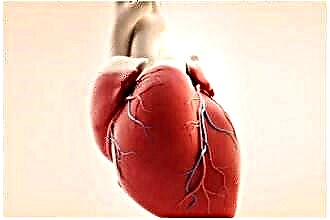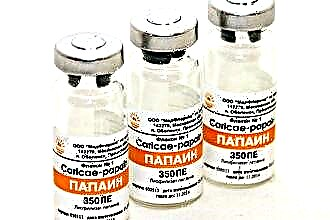Angina or tonsillitis is a nonspecific infectious-allergic inflammation in the Valdeyer-Pirogov ring (lymphadenoid ring). The foci of inflammation are localized mainly in the palatine and pharyngeal tonsils. In most cases, the causative agents of infection are streptococci and staphylococci, less often yeast-like fungi and viruses (adenoviruses, rhinoviruses).
Sore throat, myalgia and low-grade fever are the main clinical manifestations of the pathology. Delayed treatment of acute tonsillitis is fraught with chronicization of pathological processes and the development of complications. To stop the manifestations of the disease, it is necessary to take drugs of pharmacotherapy. The choice of drugs is determined by the causative agent of the infection, the localization of the foci of inflammation, complications and the age of the patient.
Features of pharmacotherapy
 How is acute tonsillitis treated? The disease is characterized by an acute onset and rapid development of pathological flora in the airways. Therefore, it is necessary to treat inflammation when the first symptoms of pathology occur. It is possible to quickly stop local manifestations of the disease and pathogens only in the case of complex therapy.
How is acute tonsillitis treated? The disease is characterized by an acute onset and rapid development of pathological flora in the airways. Therefore, it is necessary to treat inflammation when the first symptoms of pathology occur. It is possible to quickly stop local manifestations of the disease and pathogens only in the case of complex therapy.
At the initial stages of the development of tonsillitis, treatment is carried out on an outpatient basis, complicated angina is treated in stationary conditions. To eliminate inflammatory processes in the oropharynx and paranasal sinuses, the following types of therapy are used:
- etiotropic - aimed at eliminating the main causes of the development of catarrhal or purulent processes in the pharyngeal mucosa. As part of the passage of etiotropic therapy, antibacterial, antifungal and antiviral drugs are used to treat angina;
- pathogenetic - aimed at eliminating failures in the body that provoked a decrease in the reactivity of the body. As drugs of pathogenetic action, immunomodulatory and immunostimulating agents are used;
- palliative - contributes to the relief of local and general manifestations of pathology, which include: sore throat, hyperthermia, swelling in the pharyngeal mucosa, etc. Antipyretics, pain relievers, anti-inflammatory and decongestants should be taken to eliminate symptoms.
Important! Medicines for sore throat symptomatic action cannot replace medicines for etiotropic and pathogenetic therapy.
Antibacterial treatment
How to treat acute tonsillitis in adults? In 90% of cases, pathology occurs against the background of the development of gram-positive and gram-negative microbes. Pathogens are not sensitive to the effects of antiviral or antifungal drugs. To destroy them, you need to drink antibacterial drugs.
There are several groups of antimicrobial drugs, but only a few of them are used in the treatment of acute and chronic tonsillitis:
- penicillins - a group of antibacterial agents of systemic action, the components of which are active against most gram-positive and some gram-negative microbes;
- cephalosporins are broad-spectrum antimicrobial agents with a pronounced bacteriostatic and bacteriolytic effect. Used when ineffective or allergic to penicillins;
- Macrolides are one of the safest drugs that do not cause side effects. They are used to treat acute tonsillitis not only in adults, but also in children.

Antibiotics are effective medicines that help destroy bacterial pathogenic flora. However, uncontrolled intake of drugs is fraught with dysbiosis and a decrease in the body's resistance.
Antibiotic overview
What antibacterial drugs to take for the treatment of tonsillitis? It is possible to eliminate the infection in the body through systemic drugs. They destroy bacteria not only in the foci of inflammation, but also in the patient's blood. To stop inflammation, adults are advised to use the following medications:
- "Fibell" is a drug of the penicillin group with a pronounced bacteriolytic effect; contains a beta-lactamase inhibitor, therefore it can be used to destroy most strains of gram-positive and gram-negative microbes;
- "Augmentin" is a penicillin antibiotic with a wide spectrum of action; the components of the agent are active against most aerobic and anaerobic microbes;
- "Ceftriaxone" is a cephalosporin drug that breaks down the walls of pathogenic bacteria; interferes with the synthesis of RNA, as a result of which the reproductive function of pathogens is impaired;
- "Sumamed" - a drug from the group of macrolide antibiotics, which has a pronounced bactericidal effect; binds to proteins of bacteria, which prevents their further development;
- "Spiramycin" is a bacteriolytic antibiotic-macrolide, the components of which inhibit protein biosynthesis inside pathogenic cells.
Important! Antibiotics should be taken throughout the course of treatment. Early refusal of drugs can lead to a relapse of inflammation or chronicity of pathological processes in the tissues.
Anti-inflammatory drugs
NSAIDs are a group of non-steroidal antiphlogistic drugs that inhibit the production of prostaglandins (inflammatory mediators) by blocking a special enzyme - cyclooxygenase. With their help, it is possible to eliminate pain in the throat, muscles, head and neck, as well as to relieve inflammation in the ENT organs. The best medicines have an antipyretic effect, which helps to eliminate hyperthermia and subfebrile fever.
Anti-inflammatory drugs affect the work of the hypothalamic centers, which leads to the expansion of peripheral blood capillaries and increased sweating. Due to this, normal body temperature is restored, which prevents the coagulation of proteins in the blood. What medicines to drink for angina?
To stop the symptoms of pathology in adults, it is advisable to take those medications that include paracetamol. Almost all anti-inflammatory drugs have an irritating effect on the gastrointestinal mucosa. For this reason, it is not recommended to take pills without a specialist appointment.
Important! Anti-inflammatory drugs inhibit platelet activity, which can cause prolonged bleeding.
Drug overview
What medications can help relieve sore throat pain and inflammation? Before treating tonsillitis with antiphlogistic agents, you should consult your doctor. Some of them cannot be used in combination with antibiotics and symptomatic medicines.
For adults, anti-inflammatory drugs such as:
- "Piroxicam" is an antiphlogistic drug that prevents the synthesis of inflammatory mediators; helps relieve swelling from the pharyngeal mucosa and reduce inflammation in the palatine tonsils;
- "Ibuprofen" - tablets of analgesic and moderate antipyretic action, with the help of which it is possible to stop pain in the head and throat, as well as to eliminate manifestations of subfebrile fever;
- "Naproxen" - anti-inflammatory capsules that inhibit the activity of lysosomes and prostaglandins, which contributes to the regression of inflammation in the affected tissues;
- "Ketoprofen" is an antipyretic and anti-inflammatory drug that interferes with the biosynthesis of cyclooxygenase and, accordingly, prostaglandins;
- "Paracetamol" - anti-inflammatory tablets of analgesic and antipyretic action, which eliminate sore throat, hyperemia and swelling in the tissues.
You can take the tablets only after meals to reduce the likelihood of irritation of the stomach lining.
Local antiseptics
What medications to use for angina in adults? Complicated and uncomplicated forms of tonsillitis should be treated in combination with topical drugs. They prevent the generalization of catarrhal processes, as a result of which the likelihood of inflammation of the paranasal sinuses, middle ear, lungs, etc. is reduced.
The action of medications is aimed at stopping local manifestations of pathology. In particular, regular gargling and sucking pills helps:
- stop sore throat;
- eliminate hyperemia and swelling in the tonsils;
- destroy pathogens in the foci of inflammation;
- relieve inflammation in the mucous membrane of the oropharynx;
- accelerate the regeneration of the ciliated epithelium.
The best topical agents help to eliminate several manifestations of the disease at once, which contributes to the regression of inflammation and recovery. But they should be used in combination with medications of systemic action.
Symptomatic drugs
What medications do you need to take to relieve pain and sore throat? An integrated approach to solving the problem contributes to the early elimination of pathological processes in the mucous membrane of the oropharynx. Acute tonsillitis can be treated with the following medications:
- tablets (lozenges) for resorption - "Septolete", "Ajisept", "Sebedin";
- solutions for the treatment of the pharyngeal mucosa - "Lugol", "Iodinol", "Yoks", "Lugs";
- sprays and aerosols - Ingalipt, Hexoral, Bikarmin;
- rinsing preparations - "Furacilin", "Rotokan", "Chlorfillipt".
The above drugs should be taken to treat acute and chronic inflammation in the ENT mucosa. They help relieve pain and relieve swelling in the pharynx, which helps to eliminate discomfort.
Overview of solutions for inhalation
 Inhalation is an effective means of eliminating inflammatory processes in the tonsils and pharynx. Regular carrying out of the procedure guarantees a quick regression of catarrhal processes, which is due to the almost instantaneous penetration of the components of the drug into the foci of inflammation. Antiseptic solutions help to disinfect the mucous membrane and reduce the intoxication of the body, thereby improving the patient's well-being.
Inhalation is an effective means of eliminating inflammatory processes in the tonsils and pharynx. Regular carrying out of the procedure guarantees a quick regression of catarrhal processes, which is due to the almost instantaneous penetration of the components of the drug into the foci of inflammation. Antiseptic solutions help to disinfect the mucous membrane and reduce the intoxication of the body, thereby improving the patient's well-being.
What medicine for sore throat can be used for inhalation?
- "Dioxidin" - an antibacterial drug, with which you can eliminate purulent foci in the ENT organs and prevent inflammation of the paranasal sinuses;
- Miramistin is an antiseptic that relieves pain and inflammatory reactions in the affected mucosa;
- "Tonsilgon N" is an anti-inflammatory phytopreparation that accelerates regeneration processes in the ciliated epithelium;
- Pulmicort is a glucocorticosteroid drug used to treat tonsillitis complicated by pneumonia.
It is necessary to treat a sore throat with inhalations within 10-14 days after infection. Even with an obvious regression of catarrhal processes, the procedures should be continued in order to exclude the likelihood of recurrence of inflammation.



